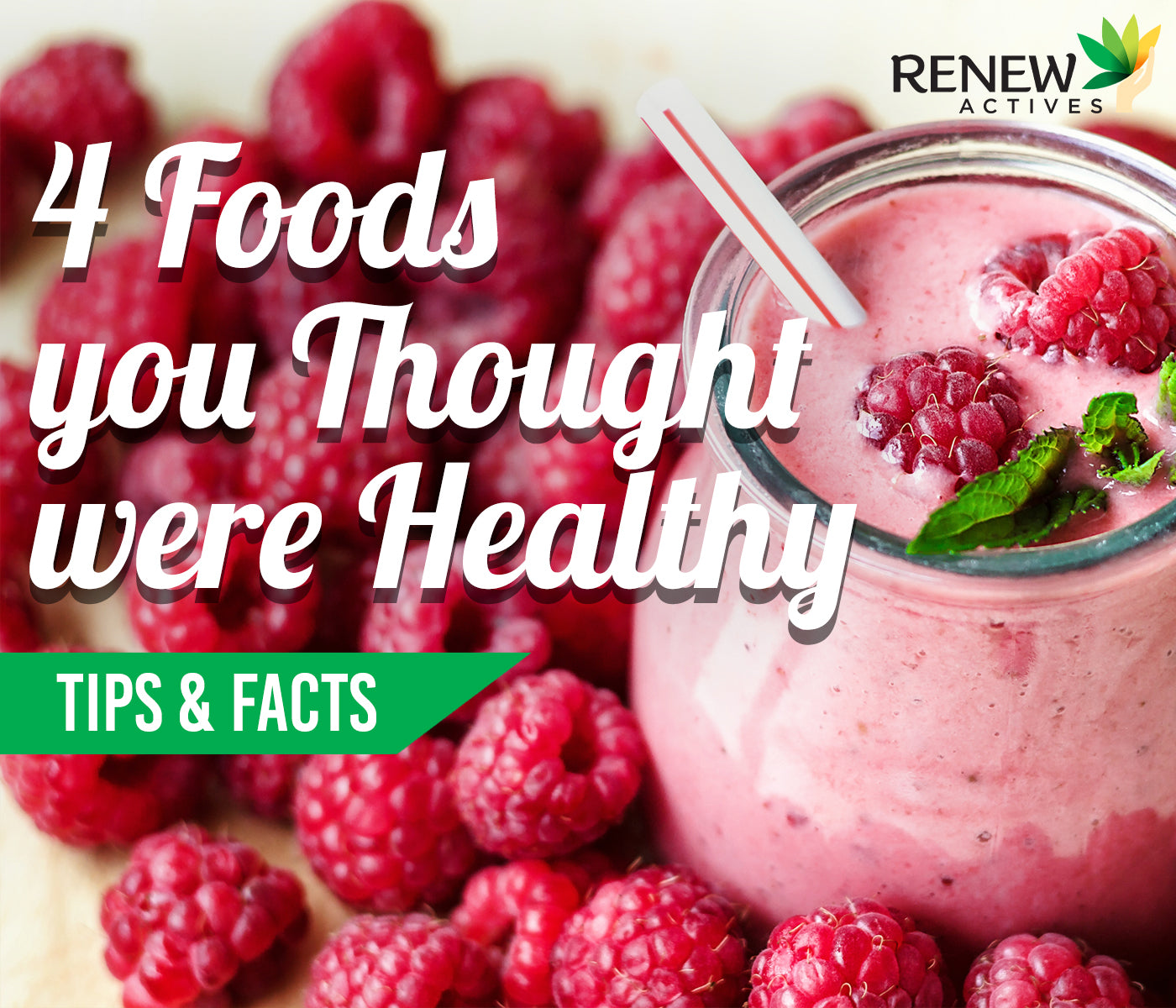
4 Foods You Thought Were Healthy
When you are an advocate of healthy eating, it’s almost certain that you already have your eyes set on a couple of items every time you go grocery shopping.
If a food is not on your list, you’d probably go with the “low fat” or “sugar-free” ones across the next aisle. This is all good but the question is, are these claims legit?
With companies trying to promote their products as “healthy,” it’s easy to get confused about which of these products are indeed healthy and which ones aren’t.
So how do you distinguish one over the other?
Below are some of the foods you thought were healthy but actually aren’t.
Orange juice

This is probably the biggest misconception a lot of us were led to believe. If you’re not aware of it, you’re probably shocked to read that your favorite morning beverage isn’t healthy at all.
The misconception stems from it being full of vitamin C, which is true. What most people aren’t aware of is that half of the orange juice we buy from the supermarket is from concentrate.
Why does this matter?
Because juice based on concentrate is a refined version of “pure” orange juice, one that‘s dehydrated then watered back down.
Added flavors, additives, and sugars are also often included in these products making them a bit different from the fresh orange they were extracted from.
Cereal

“I’m trying to lose weight so I take cereal in the morning.”
We often hear this from friends and relatives who are trying to live a healthy lifestyle. Since cereals are often marketed as full of vitamins, minerals, and fiber (some even low-fat and high-protein), most people consider them as a healthy option.
The truth is cereals aren’t so healthy at all if you take a closer look at their ingredients. They’re usually high in sugar and are classified as refined carbohydrates.
Smoothies

A smoothie is supposed to be healthy because it contains fruits and vegetables that health buffs often use for detox cleanses, right?
Well, not exactly.
Despite its supposed, healthy content, smoothies are often full of sugar strong enough to raise your insulin levels much like a chocolate bar would.
Though the sugar usually comes from fruits, the effect it has on the body isn’t that much different from that of refined sugar because a lot of its fiber has already been stripped away due to the blending process.
Yogurts

Yogurt is another product people trying to lose weight love to indulge in. After all, they are excellent snack alternatives instead of munching on chips or any other junk food.
Though they are mostly advertised as “low-fat” or “fat-free,” the truth is flavored yogurts aren’t really a healthy choice because they contain added sugar as a result of the flavoring process.
To be clear, not all yogurt is bad for the health. Greek yogurt, for instance, is a better option because they come with a lot of protein and no added sugar.
Final Thoughts
Just because it says low-fat and sugar-free doesn’t necessarily mean that a certain food is healthy. More than checking the labels, it’s essential to do some due diligence when it comes to the food you buy if your goal is to live healthily because just like the foods mentioned, not all of them are as healthy as they claim to be.

